Filter by
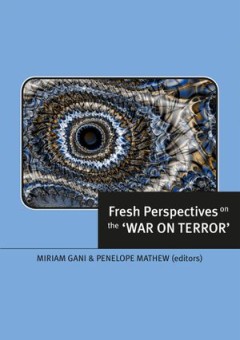
Fresh Perspectives on the 'War on Terror'
On 20 September 2001, in an address to a Joint Session of Congress and the American people, President George W Bush declared a ‘war on terror’. The concept of the ‘war on terror’ has proven to be both an attractive and a potent rhetorical device. It has been adopted and elaborated upon by political leaders around the world, particularly in the context of military action in Afghanistan a…
- Edition
- -
- ISBN/ISSN
- 9781921313745
- Collation
- -
- Series Title
- -
- Call Number
- 320 GAN f
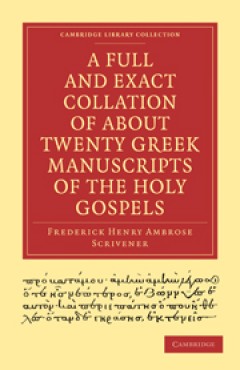
A Full and Exact Collation of About Twenty Greek Manuscripts of the Holy Gospels
The first major publication by the distinguished biblical scholar Frederick Henry Scrivener, this is a collation of twenty-three Greek manuscripts of the gospels. The Greek text is preceded by detailed introductory chapters in English, illustrating Scrivener's criteria for selecting the manuscripts, the methods he adopted to edit and collate the texts, and his critique of contemporary biblical …
- Edition
- -
- ISBN/ISSN
- 9780511706677
- Collation
- -
- Series Title
- Cambridge Library Collection - Religion
- Call Number
- -
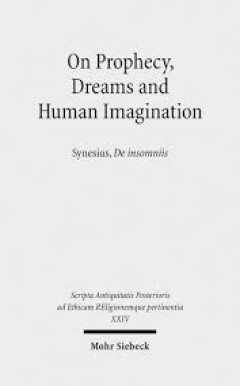
On Prophecy, Dreams and Human Imagination Synesius, De insommniis
Synesius' essay De insomniis ('On Dreams') inquires into the meaning and importance of dreams for human beings and treats themes - most of all the relationship of humans to higher spheres -, which for religiously- and philosophically-minded people are still important today.
- Edition
- -
- ISBN/ISSN
- 9783161564314
- Collation
- -
- Series Title
- -
- Call Number
- -
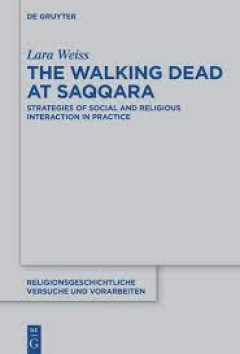
The Walking Dead at Saqqara Strategies of Social and Religious Interaction i…
Funerary rituals and mortuary cults are classics of religious studies research in ancient Egypt. Still, we know little about how the living interacted with ancestors and gods in daily life. The case study of the city of Memphis and its Saqqara necropolis in the late 2nd mil. BCE focusses on lived ancient religion, and demonstrates the spectrum of religious practices and options to configure rel…
- Edition
- -
- ISBN/ISSN
- 9783110706833
- Collation
- -
- Series Title
- -
- Call Number
- -
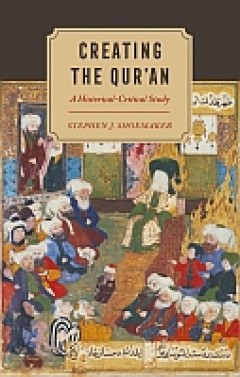
Creating the Qur’an
A free open access ebook is available upon publication. Learn more at www.luminosoa.org.Creating the Qur’an presents the first systematic historical-critical study of the Qur’an’s origins, drawing on methods and perspectives commonly used to study other scriptural traditions. Demonstrating in detail that the Islamic tradition relates not a single attested account of the holy text’s form…
- Edition
- -
- ISBN/ISSN
- 9780520389045
- Collation
- -
- Series Title
- -
- Call Number
- -

Universal Śaivism The Appeasement of All Gods and Powers in the Śāntyadhy…
In Universal Śaivism Peter Bisschop provides a critical edition and annotated translation of the sixth chapter of the Śivadharmaśāstra `Treatise on the Religion of Śiva’, the so-called Śāntyadhyāya 'Chapter on Appeasement’. The Sanskrit text is preceded by an extensive introduction on its composition, transmission and edition. The Śivadharmaśāstra has arguably played a crucial ro…
- Edition
- -
- ISBN/ISSN
- 9789004382466
- Collation
- -
- Series Title
- -
- Call Number
- -

The Panentheism of Karl Christian Friedrich Krause (1781-1832) From Transcen…
The book provides the first analysis of Karl Christian Friedrich Krause’s system of philosophy and his panentheism in English. Karl Christian Friedrich Krause has bequeathed to us a system of philosophy which is little recognised in contemporary philosophy. This is both surprising and unfortunate, because Krause’s philosophical system has much to offer: Through transcendental reflection on …
- Edition
- -
- ISBN/ISSN
- -
- Collation
- -
- Series Title
- -
- Call Number
- -

A Doubter's Doubts about Science and Religion
This 1889 volume was published anonymously and later ascribed to Robert Anderson, a barrister and theological writer who became Assistant Commissioner at Scotland Yard. Mixing his religious beliefs with his detective skills, Anderson argues for true scepticism to be embraced, comparing the tricks played on people by organised religion and science to the scams of confidence tricksters. Writing f…
- Edition
- -
- ISBN/ISSN
- 9780511700811
- Collation
- -
- Series Title
- Cambridge Library Collection - Religion
- Call Number
- -
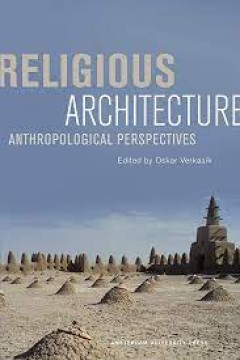
Religious Architecture Anthropological Perspectives
Religious Architecture: Anthropological Perspectives develops an anthropological perspective on modern religious architecture, including mosques, churches and synagogues. Borrowing from a range of theoretical perspectives on space-making and material religion, this volume looks at how religious buildings take their place in opposition to the secular surroundings, how they, as evocations of the …
- Edition
- -
- ISBN/ISSN
- -
- Collation
- -
- Series Title
- -
- Call Number
- -

Crafting the 613 Commandments Maimonides on the Enumeration, Classification,…
Rabbinic tradition has it that 613 commandments were given to Moses on Mount Sinai, but it does not specify those included in the enumeration. Maimonides methodically and artfully crafts a list of 613 commandments in a work that serves as a prolegemenon to the Mishneh Torah, his monumental code of law. This book explores the surprising way Maimonides put this tradition to use and his possible r…
- Edition
- -
- ISBN/ISSN
- 9781618118486
- Collation
- -
- Series Title
- -
- Call Number
- -
 Computer Science, Information & General Works
Computer Science, Information & General Works  Philosophy & Psychology
Philosophy & Psychology  Religion
Religion  Social Sciences
Social Sciences  Language
Language  Pure Science
Pure Science  Applied Sciences
Applied Sciences  Art & Recreation
Art & Recreation  Literature
Literature  History & Geography
History & Geography